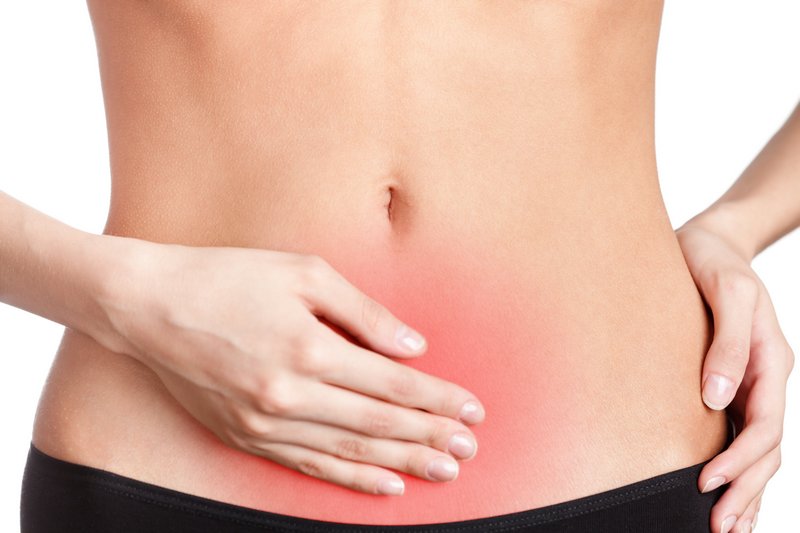Treatment of Female Cistitis with Cipro
Cystitis is an inflammation of vesical mucous membrane, occurring in acute or chronic form. Cystitis in women is a very common disease, at different times of life the disease appears at 20-40% of the female population of the planet. Men suffer from this disease very rare, which is connected with a number of anatomical and physiological characteristics.
Causes of Cystitis
The determining factor of a high incidence of this disease in women is urinary tract constitution aspects. It is much shorter and wider than at men, which creates a «friendly environment» for ingress of infection in the urinary bladder. Another important anatomical factor, making this condition predominantly female disease, is a close location of the urethral orifice to the vagina, which can lead to cystitis recrudescence practically after each sexual intercourse. Another purely female risk factor is pregnancy. During this physiological state, the bladder loses its tonus due to hormonal alteration, and late pregnancy urinary tract is affected by enlarged uterus. Combined with a decrease in immunity these changes often cause this disorder.
First emerged in previously healthy urinary bladder cystitis in women is called primary. It appears in the background of already existing bladder or kidney diseases (cystic calculi, urethrophyma, urethral stricture, chronic genital organs diseases) is called secondary. Infectious agents easily induce urinary bladder inflammation in presence of contributing factors that cause vulnerability, such as:
- avitaminosis;
- defatigation;
- frigorism;
- small pelvis venous hyperemia;
- pelvic organs descent;
- hormone disruption;
- previous infectious diseases;
- consumption.
 The most common cystitis pathogens in women:
The most common cystitis pathogens in women:
- coliform bacteria;
- streptococci;
- staphylococci;
- enterococci.
Cystitis at women can also occur after the damage of vesical mucous membrane by catheter during endoscopy or another foreign body, after administration of aggressive agents (allergic, medicamental, toxic, alimentary, chemical disorders), after body irradiation (irradiation). Urodynamics disorders play a significant role in cystitis occurrence in women (incomplete, irregular or difficult urinary bladder emptying, deliberate emptying delay), which leads to urine stagnation or infection.
Symptoms of Cystitis
Acute cystitis in women appears suddenly. Every 10-15 minutes there are urinary urgencies with cutting, especially painful in the end. There also is a lower abdominal pain, especially during palpation, general uneasiness, sometimes body temperature rises to 37,2 – 37,4 C degrees. Urine during urination excreted in small portions, 10-20 ml, sometimes a few drops, and always with the severe pain felt in the perineum. It is often nebulous, can be with blood.
In chronic cystitis, urinary bladder inflammation symptoms appear in different degrees and persist longer than 7-10 days. During chronic disease recrudescence, symptoms are the same as at acute inflammation, during remission clinical aspects are almost absent, the only discomfort is frequent urinary urgencies or active urine incontinence.
Specific symptoms and clinical urine analysis results help to detect this disorder in women. To specify its causes and exclude co-existing diseases, additional tests are conducted – Nechiporenko test, bacteriological urine culture pathogens detection, urinogenital organs ultrasonography, gynecologist examination, under strict conditions – cystoscopy and biopsy.
Learn more about Cystitis watching the video below:
Cystitis Treatment
Woman with cystitis is recommended to remain on bed rest until complete pain disappearance. Diet is prescribed with exception of spicy, salty, sour, fried foods, alcohol, coffee, chocolate. Dairy foods, fruits, and vegetables are preferred. Ample drinking is necessary for clear bacteria and inflammation products from urinary bladder (cranberry juice, urinative bearberry herbs, and horsetail, mineral water). To reduce pain antispasmodic drugs are used, heat in the lower abdomen and hot baths. In presence of blood in urine thermal procedures are contraindicated. It is obligatory to use antibacterial agents for 3-5 days (the latest generation fluoroquinolones, fosfomycin). Antibiotics for chronic cystitis are used for long-term treatment, after urine culture, identifying the pathogen and its resistance to prescribed medication. In physical therapy (iontophoresis, UHF, neodiathermy) is the most effective.
Ciprofloxacin (Cipro) for Cystitis
 Ciprofloxacin (lat. Ciprofloxacinum) is one of the most effective antibacterial drugs of fluoroquinolones group of II generation. Antimicrobial broad-spectrum agent, fluoroquinolones derivative, depresses bacterial DNA gyrase (topoisomerases II and IV, responsible for supercoiling process of chromosomal DNA around nuclear RNA, necessary for genetic code reading), disturbs DNA synthesis, growth and segmentation of bacteria; causes expressed morphological changes (including cell walls and membranes) and rapid death of bacterial cell. Has a bactericidal effect on gram-negative organisms in dormancy and segmentation period (since affects not only DNA gyrase but also causes cell wall lysis), on gram-positive organisms – only during segmentation period. Low toxicity to host cells is explained by the absence of DNA gyrase. While receiving Cipro parallel resistance to other antibiotics, not belonging to gyrase inhibitors group, doesn’t develop, which makes it highly effective against bacteria which are resistant to, e. g. aminoglycosides, penicillins, cephalosporin, tetracycline and many other antibiotics.
Ciprofloxacin (lat. Ciprofloxacinum) is one of the most effective antibacterial drugs of fluoroquinolones group of II generation. Antimicrobial broad-spectrum agent, fluoroquinolones derivative, depresses bacterial DNA gyrase (topoisomerases II and IV, responsible for supercoiling process of chromosomal DNA around nuclear RNA, necessary for genetic code reading), disturbs DNA synthesis, growth and segmentation of bacteria; causes expressed morphological changes (including cell walls and membranes) and rapid death of bacterial cell. Has a bactericidal effect on gram-negative organisms in dormancy and segmentation period (since affects not only DNA gyrase but also causes cell wall lysis), on gram-positive organisms – only during segmentation period. Low toxicity to host cells is explained by the absence of DNA gyrase. While receiving Cipro parallel resistance to other antibiotics, not belonging to gyrase inhibitors group, doesn’t develop, which makes it highly effective against bacteria which are resistant to, e. g. aminoglycosides, penicillins, cephalosporin, tetracycline and many other antibiotics.
Contraindications:
- hypersensitivity;
- simultaneous administration with tizanidine (risk of significant blood pressure decrease, drowsiness);
- children’s age (until 18 – until the completion of skeleton formation, except for treatment of complications caused by Pseudomonas aeruginosa at children with lung cystic fibrosis from 5 to 17 years; pulmonary anthrax prevention and treatment);
- pregnancy;
- lactation period.
Use with caution:
- severe cerebral atherosclerosis;
- cerebrovascular disease;
- mental illness;
- epilepsy;
- epileptic syndrome;
- severe nephatony and/or hepatism;
- elderly age.
Cipro is taken twice a day, treatment duration is as for other antibiotics: at least 5-7 days. Its effectiveness in cystitis treatment is proved, but doctors keep from its wide appointment: it more frequently causes side effects, besides, microorganisms quickly become resistant to the drug. The advantage of ciprofloxacin is its effectiveness not only in cystitis treatment but also at urethritis when caused by trichomonad, chlamydia, and mycoplasma.







